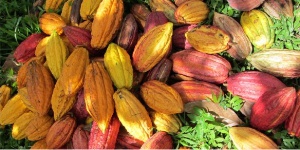In a bid to restore Ghana as a leading producer and exporter of cocoa, Nestle Ghana Limited, nutrition, health and wellness company, has launched an initiative dubbed Nestle Cocoa Plan.
Come next year, the company hopes to source 100,000 tonnes of cocoa through the implementation of the initiative.
Addressing stakeholders, including some farmers, at the launch in Accra last Thursday, the Managing Director of Nestle Ghana Limited, Mr Moataz El Hout, said the initiative forms part of the company’s efforts to support the lives of cocoa farmers and also increase the quality of their crops.
Hence, the Nestle Cocoa Plan will enable cocoa farmers run profitable farms through farmer training, distribution of higher yielding cocoa plants, and rewards for good quality cocoa.
“The initiative is aimed at sourcing good quality cocoa by ensuring long-term supply of good quality cocoa, increasing transparency in the supply chain, and also conserving the environment,” he stated.
The launch of the plan in Ghana comes at a time when the cocoa industry is beset with numerous challenges, including low productivity of cocoa farms, poor prices of cocoa produce, inadequate access to fertiliser subsidy and poor co-ordination of the cocoa spraying programme.
Nestle’s Cocoa Plan will improve social conditions of farmers through the elimination of child labour by focusing on women, children and their specific needs for education, health and water, the MD disclosed.
Mr El Hout stressed Nestle’s commitment to the implementation of its ‘Cocoa Action,’ which is an industry-wide strategy aimed at accelerating sustainability and improving the livelihoods of cocoa farmers in Ghana and Cote d’Ivoire.
He announced that the company had already trained over 9,000 farmers, built three schools and constructed eight boreholes benefiting 14,000 people in communities in the Eastern and Ashanti regions.
“We also built four village resource centres which provide training facilities for local students and video training on best farming methods for cocoa farmers,” he said.
Nestle in October this year announced a renewal of its longstanding collaboration with the International Federation of Red Cross and Red Crescent Societies (IFRC), committing to contribute CHF5 million over five years to the organisation.
In the framework of that partnership, water access and hygiene projects will be extended to cocoa-growing communities in Ghana.
The Nestle boss indicated the company’s commitment to creating shared value for the communities where it sources its cocoa and “also ensuring that COCOBOD’s efforts at addressing pertinent social concerns affecting the cocoa industry are given the necessary complementary support.”
Business News of Monday, 15 December 2014
Source: The Finder
Cocoa: Move to restore Ghana’s lead
Entertainment












